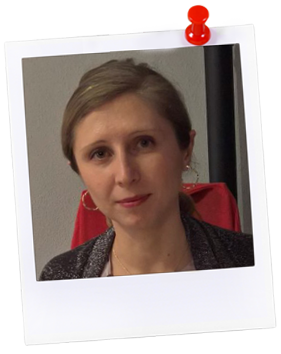How do you learn to be a youth worker in Europe?
Research findings to inform the work of trainers and educators
by Tanya Basarab and Mara Georgescu
26/06/2019
Arguably, any trainer, meaning anyone involved in training youth workers in formal and non-formal settings and structures, as well as curriculum developers in the youth field, should be up to date with research on youth work. Here we refer to the definition of youth work in the Council of Europe’s Youth Work Recommendation CM/Rec(2017)4. A trainer’s work is impacted in one way or another by the developments in the galaxy around youth work. A trainer could be involved actively in training youth workers, hence the need to be updated on the topic to make sure the training offers benefits from significant findings, orientations and ideas around youth work.
In this article, we will look at some results of a recent research project by the EU-Council of Europe youth partnership and encourage trainers and all other interested readers to look at the complete findings.
 The project Educational and career pathways of youth workers in brief
The project Educational and career pathways of youth workers in brief
Early 2017 and the project kicks off with an expert group gathering important actors on youth work policy in Europe. The Council of Europe’s main decision-making body, the Committee of Ministers, adopts on 31 May a recommendation on youth work. This is a unique text providing a European framework for youth work that member states have agreed to. At the same time, in the European Union, discussions on quality and other aspects of youth work are ongoing in parallel to planning the future EU Youth Strategy and accompanying funding programmes. These discussions would lead to adopting in November 2018 a new EU strategy in the youth field, where youth work is set clearly and explicitly as a priority area.
On the wave of this renewed commitment from the two partner institutions, the EU-Council of Europe youth partnership continued to gather and systematise knowledge about youth work, since on the national level it was quite scarce and often mixed with other themes (inclusion, participation). The youth work recommendation also called for a better understanding of how youth worker training and education are organised in different countries. And about this, by 2017, we knew even less than we knew about some other aspects of youth work. The EU-Council of Europe youth partnership started to gather and analyse this missing knowledge (without which any policy development on youth work would miss evidence), through the following:

Collect youth work country information, thanks to the European Knowledge Centre on Youth Policy (EKCYP) correspondents. This information now covers 23 countries and continues to widen.
Collect information about the educational and training pathways of youth workers through questionnaires and a series or focus groups, interviews and surveys (through the EKCYP network and other structures). This was then the basis for:
- A mapping report and practice architectures analysis that offer a picture in 41 countries on the realities of education and training of youth workers. The result shows diversity and gaps in formal and non-formal education offers. The report also categorises countries into four groups, depending on the level of development in this field
- Several thematic papers. These cover a comparison of youth studies programmes, association of youth workers, ethical standards in youth work, learning in non-formal contexts, youth work in the sociology of occupations, views on competences of youth workers, early career perspectives for youth workers and more.
Organise meetings focused on good practice sharing. Presentations of systems of education/training and validation are available online.
The project continues in 2019 with attempts to understand who youth workers are, what professions are involved in delivering youth work and how they interact. A youth knowledge book with all the information collected to date will also be edited.
This research process has been guided by a committed group of experts from European and national levels, from youth work practice, research and policy.
 Zooming in on the results
Zooming in on the results
It is no secret that, at least in the youth field, very few people like to read long documents. However, knowledge on a complex field such as education and training of youth workers cannot fit in a tweet. The EU-Council of Europe youth partnership produced a number of reports and papers precious for trainers, educators and managers of education and training programmes in the youth field. We cannot go into detail of each of the papers produced, so here are three appetisers.
 Youth workers’ associations
Youth workers’ associations
From the data collected, there are today 17 countries in which some form of youth workers’ association exists. Their value is described in the paper by James O’Donovan. They can be instrumental in some cases to the professionalisation of youth work, in others to the further training and education of youth workers or the rights of youth workers. While their functions may differ across countries, their role seems to be important in strengthening the youth work sector as such.
 Youth studies in Europe
Youth studies in Europe
You could say what courage to analyse curricula of youth studies in higher education! This must be a sacred mess! You will not be too far from reality. However, this comparison is really interesting because it actually highlights what youth workers who follow a BA or an MA in youth studies learn and also what they don’t learn about. It seems that they learn quite a lot about adolescence and youth, psychology, methods, and so on, and very little about Europe (at all levels: institutions, support to youth work, values and know-how).
 Early career perspectives for youth workers
Early career perspectives for youth workers
On-the-job training and mentoring, peer learning, job shadowing – these are some of the types of support especially important for beginners. This paper looks less at training as an activity where a group of trainees is involved, but more at the path of the individual youth worker in an organisation and how the organisation prepares them for the work with young people and for finding one’s own confidence in being a good youth worker. While different ways of doing this exist, it is striking that few guidelines about how to organise this support are out there and each organisation seems to follow intuition rather than putting a more systematic induction and support system in place for new youth workers in their teams. It is also comforting to know that so many youth workers out there are championing new ones by serving as inspiration and role-models; still it is disquieting to know that youth work is virtually invisible in counselling or career guidance programmes, which means many people might miss the chance to go into youth work.
 In a nutshell, what’s in this research for trainers?
In a nutshell, what’s in this research for trainers?
While we strongly advise you to read the research papers, we would like to raise a few messages at this point as food for thought for trainers:
1. Youth worker education is very diverse in Europe
Nothing new under the sun here. However, this research also points out the lines and circles of this diversity. We know more from this research about countries that took steps forward in the education of youth workers (and they are something to look up to and learn from, if you are a trainer) and other countries where the system of education of youth workers is either in development or lagging behind. So, perhaps this is a job for trainers to commit to supporting this development.
2. No matter where you do youth work, there is still something to learn
Being a youth worker in countries with developed systems of education for youth workers does not mean you have nothing more to learn. Take Finland, for instance, and its complex and rich systems of training of youth workers. However, it became apparent through this research that there is not much on Europe and the value of international co-operation in youth worker education pathways in Finland. Is it difficult to find Finnish participants for your training? Well, this may provide some elements of the answers. And something more: if you want to reach out to youth workers in Finland, use universities and centres of expertise on youth work.
This example shows that there are still gaps, of different sorts, in the education of youth workers no matter how advanced the education offer is. Discovering those gaps could be a first step for a renewal of the training offer for youth workers.
3. There are good examples of youth work policy
… perhaps not as many as we would hope for, and zooming in, not perfect, but there are. The national information available highlights particular examples of where youth work policy has taken important steps. For those working in/for/with the public sector and planning training and education programmes for youth workers, this means there are some examples to analyse before you set up on a bumpy journey. Ask people from these countries how they did what they did, what they would do differently today and don’t reinvent those elements of the wheel that do not need reinventing. Make use of the good steps forward that some countries took, often through difficult and lengthy trial and error. For example, if formal education of youth workers is a long and complex process involving other sectors such as formal education, employment and standard-setting structures, validation systems for training programmes of youth leaders and volunteers are already in place in some countries (see how Austria, Germany or France have dealt with this question).
4. Civil society has a lot to share about training and education of youth workers
In parts of Europe today, the investment from (youth) policy in the development of youth work is quite scarce. In these contexts, at the same time, and definitely not in optimal conditions, organisations, networks, sometimes universities and international funders have taken youth work forward. Their programmes have a rich know-how on preparing youth workers. The problem is that often they are scattered and not always in touch with each other, and project‑funding dependent.
On the positive side, in many countries in Europe today there is a vibrant civil society, with youth organisations and networks that have accumulated years and years of experience in training their youth workers (for example, youth worker associations in Serbia, Scotland or Estonia). This work should not be ignored whenever there is a more consistent effort to kick off policies for the training and education of youth workers.
5. When the state is lagging behind, NGOs need support
Linked to the previous point, it is clear that in some countries NGOs or similar platforms carry the load of the education and training of youth workers, which basically means that they need support, including financial. They would probably do better if funders did not ask them for innovation and new topics at every funding round. They need to prepare people to work with young people on those principles and values that youth work is based on, so there is nothing outdated in funding the training of volunteers for youth camps. Youth workers may change every few years, the state may still be weak in covering training, so whoever is out there should understand that someone still needs to prepare new generations of youth workers every few years. Trainers can use these findings to better argue why they need to still do training projects not too different from what they did five years ago. Funders also need to grasp this, if they really want to support youth work here and now and not point a finger to lack of action from the state. Still, the role of the state in ensuring a vibrant youth work system is crucial!
6. Mentoring and on-the-job support: a field of great potential?
When we say training, especially in the European context, often the related imaginary includes an activity with a group of people for a few days, in the same place, with a few trainers. We need to open our minds to other ways of forming and educating youth workers. Mentoring resulted in becoming a common feature in different organisations when the youth worker starts and similarly for on-the-job learning. How much is out there about how to do this kind of mentoring and how to do on-the-job support? Sadly, not much, while in fact, it is very important to put in place systematic organisational support for youth workers no matter the vocation, pay or scope. In our conversations with many youth workers and organisations we have learned that this is an open field of action with very few examples of systematic and good-quality guidance. Trainers have a role to play in developing tools for how this could be done in ways that would avoid the tiresome trial and error or leave it up to individuals. Many more things need to be developed by organisations that do youth work and by the public authorities – monitoring systems, record evaluation and lessons learned to give an impetus to youth work.
7. Competences … and what to do with them
The project obviously also looked into the competences of youth workers and the areas of learning. Now, this picture is diverse, from countries or organisations with clear and systematic definitions of competences, to realities where ways other than competences are used to define what good youth work should look like. This already offers a lot for trainers to take in.
Furthermore, this research also shows that there may be other ways of understanding quality youth work. Perhaps quality is about the process of youth work as such, like in the case of Luxembourg. The focus on competences should not overshadow other ways of envisaging youth work development.
8. There are more than youth workers and young people in youth work
Youth work training has reasonably focused, so far at least, on the European level and in the programmes of the two institutions, on training youth workers. Less has been done to train, for example, managers of youth centres, civil servants from municipalities working on this topic, and even education providers training youth workers. Things are rapidly changing, and projects like the Quality Label for Youth Centres of the Council of Europe or the Europe Goes Local within Erasmus+ are examples of including in education and training other profiles than youth workers. More needs to be done on this.
9. Ethics: how much of a discussion is this?
One of the papers produced in the framework of the research is about ethics and there are quite some learning points from this. Firstly, this seems to be an unsettled terrain including different considerations, from moral principles to practical codes of conduct. The paper highlights the scope of ethics in youth work and also points out some valuable resources to take into account when it comes to ethics. Now, it seems to us that ethics is also an unsettled topic when it comes to training youth workers. Indeed, many training courses address issues such as the values and principles of youth work, but does the way this is addressed cover all the steps from morals to how to deal with young people complaining of harassment from their youth worker, or how to deal with alcohol in youth camps, or with dilemmas related to trust and ensuring security of young people, in some cases. More is to be investigated on this topic.
10. The hegemony of language?
A lot of theoretical content that our researchers had access to was in English, and often this meant written in the UK, Ireland and Australia. The surveys done within this research project were also in English. The results are in English. The use of one working language only raises the question of how much the resources used in European youth work are in fact based on the narratives and discourse present in Anglo-Saxon countries, in other words in a particular political, cultural and historical context. This is something to be aware of, especially because the context you work in may be quite different from the Anglo-Saxon context of youth work. In some countries, if you say detached youth work this is obvious, in others, people don’t even know how to imagine or translate this.
A lot more has come out through this research about youth work in Europe, enough for a Youth Knowledge Book which we are editing at the moment. In this article we wanted to give you a first taster of this new knowledge and research and some new resources to use to make youth work better in your environment. We just hope this research will fit into your backpack of thinking about youth work and education of youth workers, a necessary step forward in this field. There will be more coming this year, so – watch this space!



